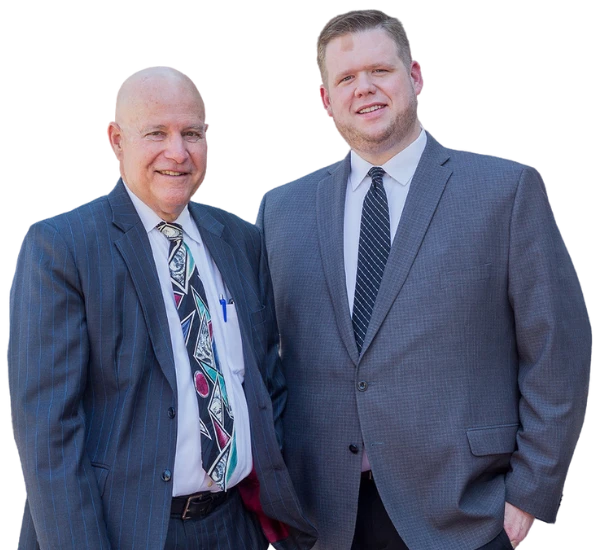
Trust Attorneys in Kansas: Protecting Your Assets and Ensuring Your Wishes are Followed

Personalized Legal Guidance To Help You Create and Understand Your Trust Matters.
Trusts are one of several important estate planning tools that can help you protect certain assets for named beneficiaries. It is best to work with an experienced professional to create and fund your trust, as well as to understand the distinction between a trust and, say, a will.
At Schlagel Long, LLC, we take a unique approach to trust matters as we will first work to develop a comfortable relationship with our clients so they can genuinely trust us. Our Kansas law firm will provide honest, open, and individualized legal guidance as we work together with you to create and fund the type of trust that works best for you.
Trusts
There are many types of trusts that address a range of legal, personal, investment, or tax planning concerns. At the most basic level, a trust is a legal entity that involves: the trust-maker, the trustee (trust manager), and the trust beneficiary. In a trust arrangement, the trustee will hold and manage assets for the beneficiary.
There may be many advantages to establishing a trust, such as avoiding probate court (often the case with revocable living trusts). Certain trusts may also result in tax advantages both for the trust-maker and the beneficiary, or they can be used to protect property from creditors. Trusts can also name someone else to manage and invest property for the trust-maker and the listed beneficiaries.
Living Trust
A living trust as discussed above is a trust you create while you’re alive, and a living trust becomes effective when the trust is signed and notarized and the property is funded or transferred to the trust. A living trust is different from a will, which must go through probate. With a trust, property is often distributed to your beneficiaries almost immediately. Revocable trusts can be modified or revoked at any time, which is not the case for irrevocable trusts that cannot be modified or revoked after they are signed.
Note that you still need a will if you have a living trust. This is because a trust cannot name a guardian for your minor children, so you will need to designate a guardian in your will. A will is also a critical backup for dictating how assets not named in the trust should be distributed. It is often the case that people buy or inherit additional property after setting up their trust that they forget to transfer to their trust, so a will can address this. If you don’t have a will, any property not transferred by your trust will be distributed according to the state’s “intestate” laws.
Testamentary Trust
Special Needs Trusts
A special needs trust (SNT) is a type of trust that will preserve the beneficiary’s eligibility for certain needs-based government benefits like Medicaid and Supplemental Security Income (SSI). Generally, the trustee supplements the beneficiary’s government benefits but does not replace them. Some examples of supplemental needs are costs for caregivers, companions, medical expenses not covered by Medicare or Medicaid.
Note that there are two categories of special needs trusts – first-party and third-party. First-party SNTs are funded with assets that belong to an individual with a disability and who is the beneficiary. The funding may come from a personal injury settlement or direct inheritance. Third-party SNTs are funded with assets belonging to someone other than the beneficiary. Funding may come from gifts, inheritance, and proceeds of life insurance policies.

Estate Planning Legacy Planner
Everyday, we work with people who have lost someone they care about. There is so much these folks have to organize and manage. This planner organizes the information they will most need, in our experience, saving so much time and unnecessary cost. Besides organizing your information, it's so important to have a good estate plan that will keep your family out of court and conflict.
Please use the button below to receive a free copy of our Estate Planning Legacy Planner, an organization tool essential to any estate plan designed to help your loved ones take care of you and handle your affairs.
Blog Posts About Trusts
What Kind of Trust Is Right for You?
What Is a SLAT in Estate Planning?
What Are Typical Estate Planning Documents?
Can I Be Sure My Estate Plan Works?
Exemptions and Flexibility in Gifting
Different Trusts for Different Estate Planning Purposes
Don’t Overlook Key Parts of Estate Plan
Why Everyone Needs an Estate Plan
Inherited IRAs Require Careful Handling
Take Advantage of Tax Laws Now
Contact Our Firm for Legal Representation Today
If you have questions about funding or creating a trust, do not hesitate to consult our Olathe trust lawyer at Schlagel Long, LLC. We are highly experienced in a range of estate planning matters, which ensures we will help you put your best foot forward as you plan for your and your loved ones’ futures. We will provide personalized and one-on-one legal counsel as we work together with you on your trust.
Schedule a free consultation with Schlagel Long, LLC today to get started. Call (913) 782-5885 or find our Kansas trust attorneys online.
